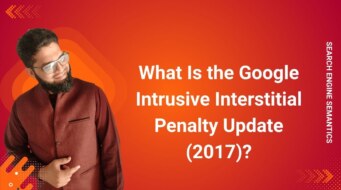What Are Stop Words in SEO?
Stop words in SEO refer to extremely common words such as “the,” “is,” “in,” “on,” “for,” and “and” that traditionally carried little standalone semantic value for search engines. In early search engine systems, these words were often filtered out during indexing to improve processing efficiency and reduce noise in search engine algorithms.
However, modern SEO has evolved. With advancements in natural language processing, entity-based SEO, and search intent modeling, stop words now play a nuanced role in how search engines interpret meaning rather than how they rank content directly.
Understanding Stop Words in the Context of Search Engines
Search engines were originally designed to match documents based on keyword frequency and relevance. Words that appeared excessively across almost all documents—such as articles, prepositions, and conjunctions—were categorized as stop words to improve crawl efficiency and indexability.
In modern search, stop words are selectively processed depending on query context, user intent, and semantic structure.
Common Categories of Stop Words
| Category | Examples | SEO Consideration |
|---|---|---|
| Articles | a, an, the | Often ignored unless they affect meaning |
| Prepositions | in, on, at, of | Can influence local and relational intent |
| Conjunctions | and, or, but | Used to connect entities or concepts |
| Pronouns | he, she, it, they | Rarely indexed independently |
Search engines no longer treat stop words as universally disposable. Instead, they evaluate them alongside search queries to determine whether removing them would change the query’s meaning.
How Google and Modern Search Engines Treat Stop Words Today?
With the introduction of algorithmic systems like Google Hummingbird, RankBrain, and BERT, search engines shifted from keyword matching to semantic understanding.
Stop words are now evaluated as part of:
Sentence structure
Contextual relevance
Entity relationships
Conversational and voice search queries
For example, queries like “The Office” vs “office” generate entirely different SERPs because the stop word “the” changes the intent from a general noun to a branded entity.
Stop Words and Search Intent Interpretation
Stop words frequently help clarify search intent types, especially in:
Informational queries
Navigational searches
Branded entity lookups
A query such as “best tools for SEO” communicates a different intent than “best SEO tools”, even though both contain stop words. Search engines analyze these phrases holistically using keyword proximity and keyword prominence rather than stripping words mechanically.
This is especially important in long-tail keywords, where stop words naturally appear and contribute to intent clarity.
Impact of Stop Words on On-Page SEO Elements
Stop Words in Page Titles and Headings
Removing stop words from page titles can make them robotic and reduce click-through rate from organic search.
Search engines reward titles that:
Match user language
Reflect real-world phrasing
Improve readability
This aligns with modern on-page SEO best practices, where user experience and clarity matter more than rigid keyword placement.
Stop Words in URLs
In early SEO, removing stop words from URLs was common. Today, clarity outweighs minimalism.
| URL Type | Example | SEO Impact |
|---|---|---|
| Over-optimized | /best-seo-tools-2025 | Can appear unnatural |
| Contextual | /best-tools-for-seo-2025 | More readable and shareable |
Readable URLs improve user experience and reduce ambiguity for both users and crawlers.
Stop Words in Body Content
In modern SEO writing, removing stop words from content disrupts natural language and can negatively impact user engagement metrics such as dwell time and scroll depth.
Search engines analyze content quality through signals like:
Contextual depth and topical coverage
Stop words help maintain narrative flow, which supports helpful content principles.
Do Stop Words Affect Rankings Directly?
Stop words are not a direct ranking factor. Google does not reward or penalize pages simply for including or excluding them.
Instead, stop words influence:
Query interpretation
Entity disambiguation
Natural language comprehension
Their indirect impact lies in how they support content clarity, intent matching, and semantic relevance, all of which affect organic ranking over time.
When Stop Words Matter Most in SEO?
Stop words become critical when:
They distinguish entities (“The Who” vs “who”)
They define relationships (“SEO for ecommerce” vs “SEO ecommerce”)
They support conversational and multimodal search
In such cases, removing stop words can distort meaning and harm search visibility.
SEO Best Practices for Stop Words (2025 and Beyond)
| Best Practice | Why It Matters |
|---|---|
| Write naturally | Aligns with NLP-based ranking systems |
| Keep stop words in titles | Improves CTR and readability |
| Use them strategically in URLs | Enhances clarity and intent |
| Don’t over-optimize | Prevents over-optimization risks |
Modern SEO favors holistic SEO, where language mirrors how real users search and read.
Stop Words in the Era of AI Search and SGE
With the rise of AI Overviews and Search Generative Experience, stop words are increasingly important for contextual comprehension.
AI-driven search systems rely on:
Full-sentence understanding
Conversational phrasing
Entity-to-entity relationships
This makes stop words essential for accurate summarization, passage ranking, and generative responses.
Final Thoughts on Stop Words
Stop words have evolved from being ignored technical noise to becoming contextual signals that support meaning, clarity, and intent. While they do not directly influence rankings, they strongly affect how search engines understand queries and how users engage with content.
In modern SEO, the goal is not to eliminate stop words—but to use them intelligently as part of a broader strategy focused on semantic relevance, user intent, and content quality.
Want to Go Deeper into SEO?
Explore more from my SEO knowledge base:
▪️ SEO & Content Marketing Hub — Learn how content builds authority and visibility
▪️ Search Engine Semantics Hub — A resource on entities, meaning, and search intent
▪️ Join My SEO Academy — Step-by-step guidance for beginners to advanced learners
Whether you’re learning, growing, or scaling, you’ll find everything you need to build real SEO skills.
Feeling stuck with your SEO strategy?
If you’re unclear on next steps, I’m offering a free one-on-one audit session to help and let’s get you moving forward.
Table of Contents
Toggle


